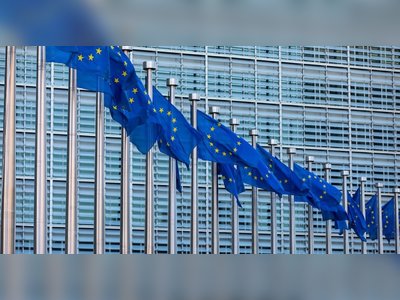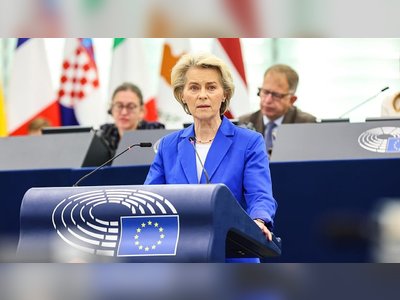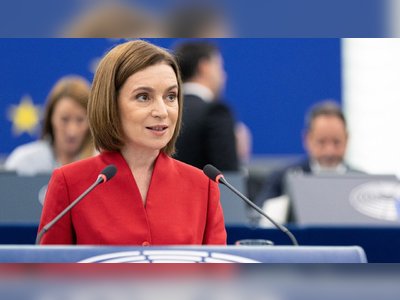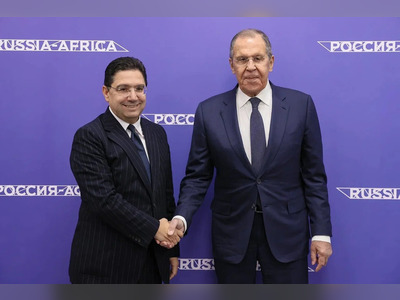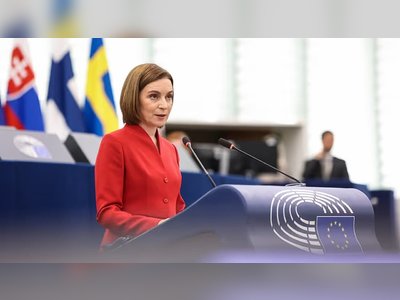Political Landscape Shifts in Germany Following Recent Election
The elections signal a dramatic shift in German politics, with rising support for far-right and extreme-left parties and turmoil within the traditional parties.
The recent election in Germany has resulted in a significant shift in the political landscape, contributing to a fragmented society that poses challenges for the political mainstream.
The Ampel coalition, led by Chancellor Olaf Scholz, has faced substantial losses, while the Free Democratic Party (FDP) has been eliminated from the parliament.
The Green Party, previously part of the coalition, has also experienced a decline in influence amid criticisms regarding their handling of economic issues.
In contrast, the conservative Christian Democratic Union/Christian Social Union (CDU/CSU) led by Friedrich Merz emerged victorious, demonstrating a notable shift in voter sentiment.
With over 30% of voters supporting far-right or extreme-left parties, the election results indicate widespread discontent with current governance, particularly related to issues of migration, economic stagnation, and bureaucratic inefficiencies.
The far-right Alternative für Deutschland (AfD) has seen its support double, marking a significant presence in eastern Germany, while the revival of the Left Party highlights a growing disenchantment with centrist politics.
Friedrich Merz, who has secured the chancellorship, now faces the challenge of uniting a party emerging from the shadows of Angela Merkel's leadership.
His ability to navigate a coalition with the Social Democrats (SPD), now led by Lars Klingbeil, will be crucial as the SPD grapples with a diminished base of support following Scholz's tenure.
Boris Pistorius, the current Defense Minister, is noted as a potential key figure for the SPD's recovery and modernization efforts.
The collapse of the FDP under Christian Lindner's leadership, which failed to reach the necessary vote threshold, signals a significant re-evaluation for liberals in Germany and across Europe.
The need for an ideological and structural shift within liberalism has been emphasized, as the party's previous strategies have proven unsustainable in the current political climate.
The AfD's rise, championed by lead candidate Alice Weidel, underscores the party's appeal despite its controversial positions, including opposition to immigration and connections with far-right ideologies.
This surge in support, particularly among young voters in eastern Germany, suggests a potential reshaping of political divisions reminiscent of historical East-West tensions in Germany.
Germany has traditionally relied on a consensus-driven political culture, but the election results prompt a reevaluation of this approach.
Key issues such as economic stagnation, a burdened social security system, and ineffective migration management have emerged as urgent matters that necessitate more than bureaucratic responses.
Merz's forthcoming negotiations with the SPD will serve as a critical test of his understanding of voter concerns.
Historically, coalition agreements in Germany have been complex and vague; however, the electorate is signaling a demand for decisive action rather than mere compromises.
The future of the CDU's governance strategy could hinge on whether it can restore public confidence or if the rise of far-left and far-right movements continues unchecked.
While the stability of democracy in Germany is not immediately threatened, the erosion of centrist political power raises concerns about the trajectory of liberal democracy.
Observers note that continued support for radical parties could lead to increased polarization and an unstable political environment, posing significant challenges for both Merz and the broader political landscape in Germany.
The Ampel coalition, led by Chancellor Olaf Scholz, has faced substantial losses, while the Free Democratic Party (FDP) has been eliminated from the parliament.
The Green Party, previously part of the coalition, has also experienced a decline in influence amid criticisms regarding their handling of economic issues.
In contrast, the conservative Christian Democratic Union/Christian Social Union (CDU/CSU) led by Friedrich Merz emerged victorious, demonstrating a notable shift in voter sentiment.
With over 30% of voters supporting far-right or extreme-left parties, the election results indicate widespread discontent with current governance, particularly related to issues of migration, economic stagnation, and bureaucratic inefficiencies.
The far-right Alternative für Deutschland (AfD) has seen its support double, marking a significant presence in eastern Germany, while the revival of the Left Party highlights a growing disenchantment with centrist politics.
Friedrich Merz, who has secured the chancellorship, now faces the challenge of uniting a party emerging from the shadows of Angela Merkel's leadership.
His ability to navigate a coalition with the Social Democrats (SPD), now led by Lars Klingbeil, will be crucial as the SPD grapples with a diminished base of support following Scholz's tenure.
Boris Pistorius, the current Defense Minister, is noted as a potential key figure for the SPD's recovery and modernization efforts.
The collapse of the FDP under Christian Lindner's leadership, which failed to reach the necessary vote threshold, signals a significant re-evaluation for liberals in Germany and across Europe.
The need for an ideological and structural shift within liberalism has been emphasized, as the party's previous strategies have proven unsustainable in the current political climate.
The AfD's rise, championed by lead candidate Alice Weidel, underscores the party's appeal despite its controversial positions, including opposition to immigration and connections with far-right ideologies.
This surge in support, particularly among young voters in eastern Germany, suggests a potential reshaping of political divisions reminiscent of historical East-West tensions in Germany.
Germany has traditionally relied on a consensus-driven political culture, but the election results prompt a reevaluation of this approach.
Key issues such as economic stagnation, a burdened social security system, and ineffective migration management have emerged as urgent matters that necessitate more than bureaucratic responses.
Merz's forthcoming negotiations with the SPD will serve as a critical test of his understanding of voter concerns.
Historically, coalition agreements in Germany have been complex and vague; however, the electorate is signaling a demand for decisive action rather than mere compromises.
The future of the CDU's governance strategy could hinge on whether it can restore public confidence or if the rise of far-left and far-right movements continues unchecked.
While the stability of democracy in Germany is not immediately threatened, the erosion of centrist political power raises concerns about the trajectory of liberal democracy.
Observers note that continued support for radical parties could lead to increased polarization and an unstable political environment, posing significant challenges for both Merz and the broader political landscape in Germany.
AI Disclaimer: An advanced artificial intelligence (AI) system generated the content of this page on its own. This innovative technology conducts extensive research from a variety of reliable sources, performs rigorous fact-checking and verification, cleans up and balances biased or manipulated content, and presents a minimal factual summary that is just enough yet essential for you to function as an informed and educated citizen. Please keep in mind, however, that this system is an evolving technology, and as a result, the article may contain accidental inaccuracies or errors. We urge you to help us improve our site by reporting any inaccuracies you find using the "Contact Us" link at the bottom of this page. Your helpful feedback helps us improve our system and deliver more precise content. When you find an article of interest here, please look for the full and extensive coverage of this topic in traditional news sources, as they are written by professional journalists that we try to support, not replace. We appreciate your understanding and assistance.
